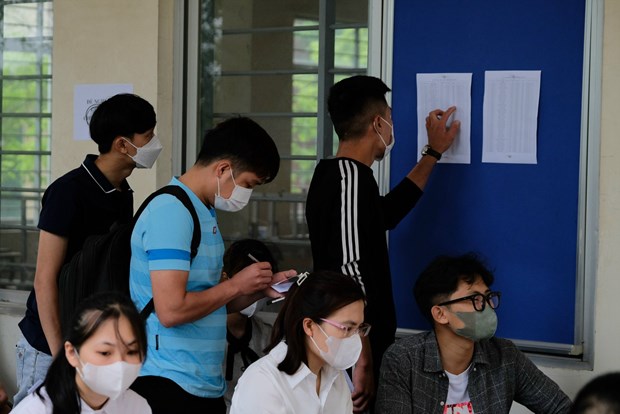 Society
Society

 |
| Vietnamese workers sit for a foreign language exam before going abroad. — Photo laodong.vn |
HÀ NỘI — There have been few skilled Vietnamese guest workers in Europe in recent years, according to deputy head of the Department of Overseas Labour under the Ministry of Labour, Invalids and Social Affairs Nguyễn Gia Liêm.
Liêm said Vietnamese guest workers in Europe mostly perform manual jobs in the fields of industrial production, construction, food processing, apparel and agriculture. Their contracts often last two years which could be extended. After their contracts expire, they could stay there if they get new legal jobs.
Meanwhile, more job opportunities with high pay are available for skilled workers, but few Vietnamese workers have access to them.
Liêm explained that the legal documentation for recruitment and procedures to send workers abroad often requires a significant amount of preparation time due to different customs, cultures and legal regulations among various countries. Some countries such as Poland and Slovakia have strict requirements in issuing work visas, resulting in lengthy waiting period.
Besides, the cost of living in many European countries is relatively high, posing difficulties in hiring on-site labour management. The cold winter in a majority of European countries also limits the diversity of employment options for workers.
Vietnamese workers seeking employment in Europe will have to compete with those from other countries within the region, as well as with those from developing nations with similar skill levels from different continents. Cultural differences also pose barriers during their working and integration process.
In several recent years, some European countries received Vietnamese workers because native workers migrated to more developed nations in Europe for employment, but when the developed economies face problems such as epidemics or crisis, they could return and reclaim job opportunities previously occupied by foreign workers, including those from Việt Nam, Liêm added.
Trần Mạnh Thắng, general director of the GHW Hanoi JSC, said many European countries are not inclined to accept unskilled labour from foreign countries. However, they are willing to offer salaries and provide free training lasting 2-3 years to train skilled workers according to their training standards.
Deputy Director General of the Directorate of Vocational Education and Training (DVET) Nguyễn Thị Việt Huong affirmed that DVET will identify specific labour demand concerning profession and competency requirements at various levels in European countries, thereby developing a training plan to meet requirements of each nation. — VNS




